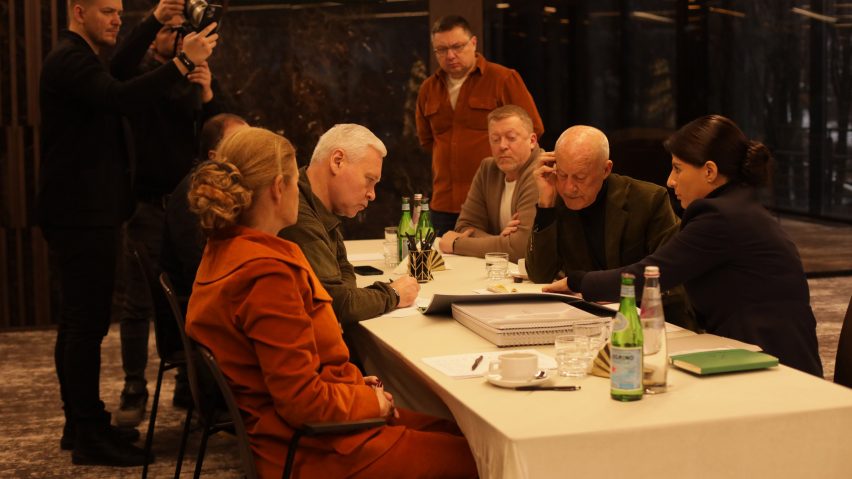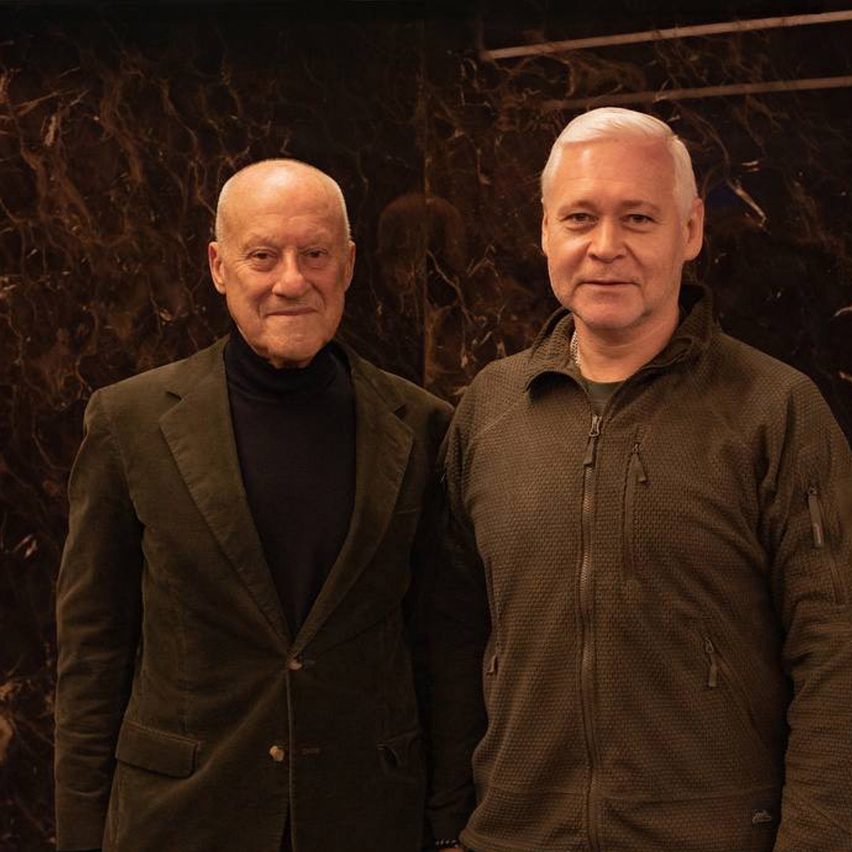
Norman Foster reveals Kharkiv reconstruction masterplan
British architect Norman Foster has unveiled details of the masterplan to redevelop Kharkiv, which will include a "landmark building" designed by the architect, on a trip to the Ukrainian city.
Working pro bono with engineering studio Arup, the Norman Foster Foundation and Kharkiv Group of Architects, Foster + Partners founder Foster has developed a masterplan for the rejuvenation of the city following heavy bombardment during Russia's invasion of Ukraine.
Developed during over 100 meetings and working sessions, the masterplan for the city in eastern Ukraine will initially focus on five pilot projects – heritage, rivers, industry, housing, and the science neighbourhood.
An outline of each was revealed at the meeting with a comprehensive document detailing the projects set to be released early next year.

The heritage project will focus on creating a "new architectural landmark" in Kharkiv's city centre, while a coal plant in the city will be converted into a "clean energy and food centre" as the industry project.
Across the city, existing housing blocks will be retrofitted as the housing project and a six-kilometre-long stretch of land between the Kharkiv and Nemyshlya rivers will be turned into an ecological and pedestrian park as the rivers scheme.
Masterplan "result of many months of cooperation"
A science neighbourhood aimed at becoming a home to innovative businesses, which will include a building designed by Foster, is also being developed.
"Today we had the opportunity to discuss this with Lord Norman Foster, who specially came to Ukraine to discuss the post-war reconstruction of Kharkiv," said Kharkiv mayor Igor Terejov.
"This is our first meeting in person, but it is the result of many months of cooperation between the Kharkiv City Council, Kharkiv architects, and leading world experts."
"Together we discussed the masterplan of the city and the reconstruction of residential areas, as well as the creation of not just a science park, but a whole scientific community, a real scientific district," he continued.
"It will have everything – a platform for the development of startups, universities, housing, a green zone, a market – all the necessary infrastructure for a comfortable life and economic development."
Initially announced in April, the masterplan aims to reconstruct Kharkiv, which is located only 40 kilometres from the Russian border and was heavily damaged by the Russian army during the invasion with heritage organisations warning of a "barbaric destruction of architectural heritage" in the city.
Earlier this year, global heritage body UNESCO reported that over 140 significant buildings had been damaged in the country since the Russian invasion began.